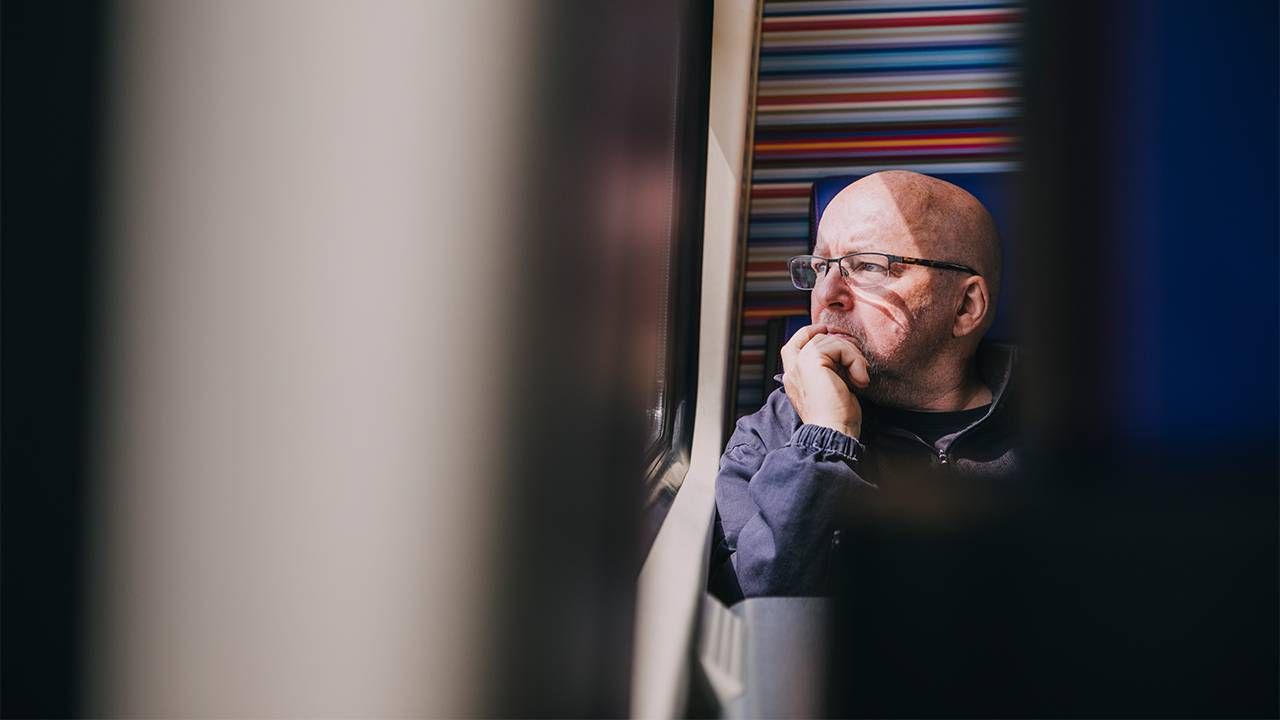Should You Reveal a Diagnosis?
Why some may choose to keep information private, and why friends should respect that decision
When I was in my 20s, my father was diagnosed with colon cancer. The night before his surgery, I was at my parents' house discussing my father's prognosis with a close friend over the phone.

After l hung up, my mother told me that she had overheard my phone call and was upset by what I had said. I was confused by her reaction. I hadn't said anything untrue, or with malintent. I had simply confided in a close friend. My mother countered that the information was "private" and should remain "in the family," not divulged to others.
Although this exchange happened over 30 years ago (and my dad, now 81, made a full recovery), my mother's words still resonate with me. Is sharing medical diagnoses with friends a good idea, or was my mother right, and is it better to keep that information confidential?
I realize now that my mother didn't want me to speak about my father's illness because she felt saying it aloud made it "real."
Dr. Gail Saltz, a New York City-based psychiatrist and host of the How Can I Help? podcast, says when dealing with a difficult diagnosis, there isn't a one-size-fits-all response.
"Most people benefit from some support in this situation. But whether to tell everyone you know about your diagnosis or just one or two close friends depends on the person and what they think will benefit them most," Saltz said.
The Realness Factor
I realize now that my mother didn't want me to speak about my father's illness because she felt saying it aloud made it "real." For me, the doctors and testing had already done that, but I see now that she was in denial and wanted to stay there a while longer.
In June, NPR correspondent Ina Jaffe revealed that she was diagnosed with stage 4 breast cancer two years ago, a fact she hadn't previously made public. "Keeping it secret served me well," she wrote on the NPR website. "I didn't have to explain myself to friends and strangers while I was still in the hysterical stage."
Jaffe went on to explain that keeping her diagnosis a secret allowed her to grieve for her own life privately.
"A person dealing with a difficult diagnosis may want a 'patient vacation' where they can just be themselves," said Arlene B. Englander, an author and psychotherapist.
Keeping an Illness Secret
Added Saltz, "If others don't know what is going on, they are more likely to act 'normal' around them, and this respite from thinking about the illness can be beneficial."
While sometimes people choose not to confide in a friend for a reason (perhaps the friend is gossipy or is close to the boss of the person who is ill, for example), many times it's not that clear cut.
"A person facing an illness may have mixed emotions. They may feel like sharing one day but not the next," said Englander. "Or they may feel more comfortable discussing their illness in a support group with people they just met, but not with close friends."
In a July 2021 entry in The New York Times Social Q's column, a reader expressed to writer Philip Galanes how upset she was when a friend chose not to disclose her ovarian cancer diagnosis to her, and she accidentally found out.
As the reader said, "(My friend's) decision to exclude me from these issues in her life hurts me and puts me in an awkward situation. What can I say if I'm not supposed to know about these big challenges she's facing?"
Respecting Privacy
Galanes advised the reader to respect her friend's privacy. He explained, "People have all kinds of reasons for sharing or withholding information about their health." He also urged her not to draw conclusions about their friendship based on her friend's decision not to confide in her.
While people have the right to choose what they share with others, keeping a diagnosis secret can be stressful. It can create a distance between the patient and friends when they both could use support and understanding.
If a friend is going through something and they don't tell you, you might sense a distance and wonder, "Did I do something?" or "Are they mad at me?" when it has nothing to do with you or your friendship.
According to Englander, this past year has led many to "develop a new social anxiety and a sense of uncertainty."
If the person has trusted you and asked you to keep their diagnosis a secret, do keep their confidence.
In Saltz's view, "Telling people the truth can feel free. A person who is sick can be authentically themselves if they share with friends what is going on with them."
Jaffe explained that her outrage at the lack of funding for metastatic breast cancer was one of the primary reasons she chose to disclose her secret. Next Avenue Influencer in Aging Michael J. Fox's candidness about his Parkinson's diagnosis has raised awareness and funding for other patients who have Parkinson's Disease.
Even for people who don't have a public platform, sharing a diagnosis can be helpful. There may be knowledge (new treatments, doctor recommendations, suggestions on how to handle side effects) that one patient can pass on to another, but only if they know what is going on.
Ultimately, It's About the Patient
There is no right or wrong answer; it's a matter of each patient figuring out what feels best for them. As Jaffe explained in her NPR piece, "I have no issue with people who want to keep their cancer diagnosis a secret to the end. If you have the misfortune to have cancer, you get to have it any way you want."
If a friend does decide to confide in you about their diagnosis, be supportive. Instead of saying, "How can I help?" make specific offers of driving to doctor's appointments or dropping off dinner.
Englander says, "Be a good listener. Try to understand, but don't say, 'I understand,' because you probably don't if you haven't been in their situation. Let the patient remain in control as much as possible."
If the person has trusted you and asked you to keep their diagnosis a secret, do keep their confidence. They may be concerned about how it will impact their job or how others in the community will react. Even telling one other person can have a ripple effect and negatively impact the person who is ill.
And if you disagree with their decision, remember it is their choice to make. If you feel it is imperative to share their diagnosis with someone else (such as a medical professional who might have expertise), ask their permission first.
If a friend hasn't confided in you, don't assume it reflects your relationship. As Galanes advised the column reader, "Continue to be the best friend you can be. Check in with her; invite her to hang out. Even if she declines, she'll probably appreciate your kindness. Never hint that you know something is up. She'll tell you when she's ready."


